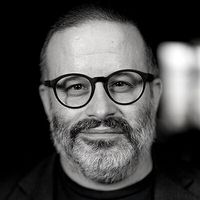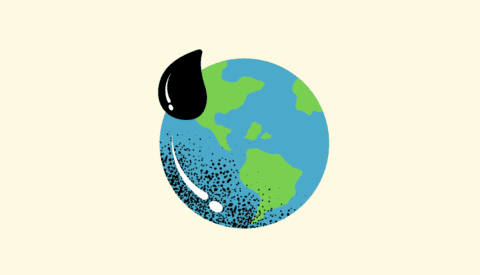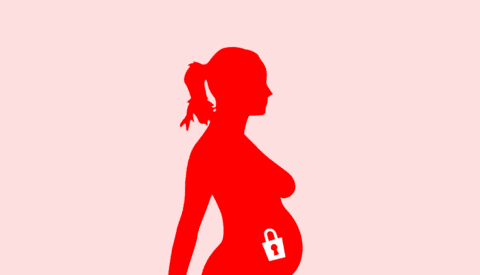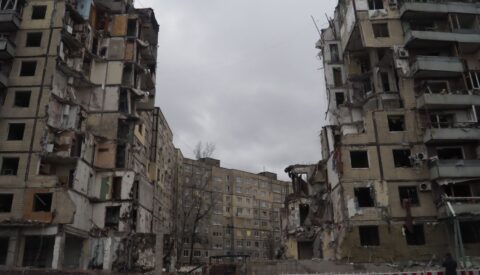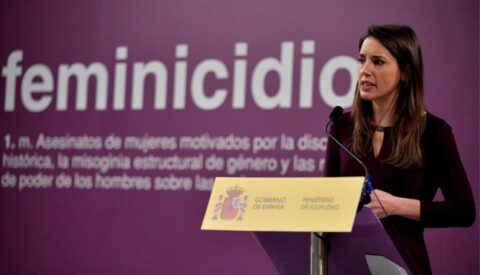«I Thought I Had Died, Too»
After a brush with death in Ukraine in 2023, Colombian writer Héctor Abad Faciolince discusses his experience, survivor’s guilt, his new book, «Ahora y en la hora», and the war in Ukraine.
Article
2025
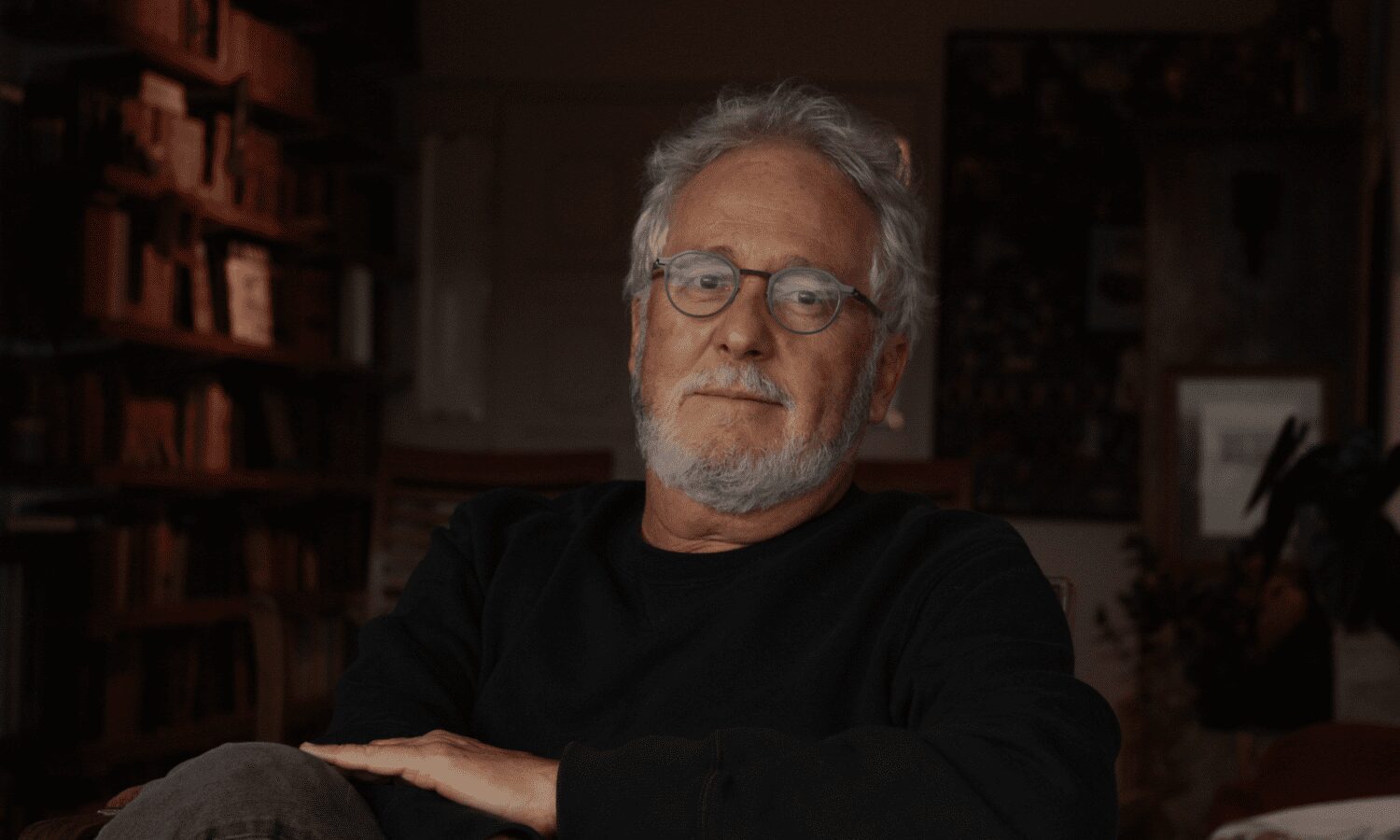
Article
In mid-2023, Colombian writer Héctor Abad Faciolince attended the Kyiv book fair to introduce the Ukrainian translation of his novel «El olvido que seremos» and to support the Ukrainian people’s struggle against Russia. In the midst of the war, a few participants decided to travel near the front line of the Ukrainian city of Donetsk; they decided to say goodbye over a meal and were met by a Russian missile. The only person who died at the table was Victoria Amelina, a Ukrainian writer and translator, who, by a fortuitous change, had taken Abad’s seat. In other rooms of the restaurant, 12 more people died. This terrible experience is recounted in the recently published and indispensable «Ahora y en la hora».
Ahora y en la hora both shrinks your heart and expands it. On page 135, you say that you have already befriended Victoria.
It is rare that one becomes friends with someone after death. One who has never called her Vika, the affectionate nickname used by all her friends, but Victoria, almost distantly and respectfully. One who has become friends with her by reading her, reading her speeches, her articles, her poems, her books, even her posthumous book that managed to get published. The relationship was strengthened by many feelings, by discovering the exact date of her birth, Jan. 1, 1986, very close to the birth of my daughter. That created an obsession in me because when one survives something monstrous, there is an impulse of «ah, I survived!» as of joy, of happiness of being alive. But then, especially if you realize that the one who did die and was in your seat is your daughter’s age, you realize that it’s not so much like that.
And if you later learn that there are two 14-year-old twins, Juliya and Hanna Aksenchenko, who died in front of their father, and the father survived, you understand that the survival of the elder is something that goes against the world’s order. We believe that the order of the world is that the old people die and then the adults and then the young people, and the children never die, or it seems that they will never die. Yet the fact that there was also a child with a smashed skull inside that restaurant is like a violation of the world’s order, a cosmic mistake. The strangest emotion — and the one I felt while writing this book, which was somewhat about death — was that maybe I had died but had not realized that I had died and I thought I had survived. And the world was still more or less the same, but I was really dead. So I wrote this book with very crazy ideas, because I used to be such a rationalist: like Victoria could dictate chapters or sentences to me… like I was dreaming such strange dreams that those dreams were not mine. That I was dreaming Victoria’s dreams where people were speaking other languages that Victoria understood, but I didn’t. Or that the one who had died was my daughter and she was whispering things to me from beyond the grave. I was very messed up.
That’s close to mysticism. It’s almost like a dark illumination.
Yes, but it was a very dark illumination at the same time, because I would take my notebooks and write, write, write, write and then I would review or I would clean it up and I would realize that everything was badly written, that I was repeating words, that the grammar was wrong, the syntax was wrong, sometimes I even made mistakes in the spelling and all of that was because I didn’t want to write the book. I didn’t want to dwell on that horror, I didn’t want to remain behind, in what I had lived. The temptation was silence all the time. I knew that to be able to recount it well, I had to live it again in detail in my mind, and at the same time I was taking antidepressants that tried to take away the depression and the sadness of what I had gone through. So the antidepressant kind of opposes the reviving of the sadness in one’s mind. And only by reliving the horror and sadness in my mind could I write it well. So it was also a chemical struggle, a mystical struggle, a struggle of madness…
The antidepressant makes you dull.
It makes you dumber than you are. It’s hard to stay focused, and especially hard to focus on the bad stuff. It was horrible.
«A writer is nothing, a writer is someone who receives signals, words from others»
I shuddered at the paragraph where you explain how they switched places at the restaurant table, a quasi-mathematical graph that tries to sort out randomness.
A Russian roulette with a five-shot drum, and somebody gets hit by the bullet, and we are all playing it. I made a lot of sketches of the movement, I made a lot of sketches of how I got up, changed places, went to the bathroom and someone who was in the bathroom died, because the missile went down exactly on the kitchen, the bar and the bathroom… I made a sketch of the movements. I thoroughly contacted all the witnesses: I confirmed that Sergio was under the table pouring his whiskey, I checked that he had gone to the bar to get the glasses filled with ice so he could break the law. But I wrote the book in a very crazy way, and what I have to say, it’s important for me to say it and acknowledge it, is that I actually wrote two books. I wrote this one and at the same time, interspersed with the nonfiction chapters, there was a fiction book of an old man who goes to Gaza to try to smuggle food in because he can’t stand that people are starving there. And I gave my publishers a very crazy book, with one chapter of fiction, one chapter of nonfiction, and I was so psychologically unwell that I said, «I’m not able to do anything else, see what you can do».
And then another crazy situation: My first extremely premature twin grandchildren were born. They were in the ICU with my daughter, and I thought the three of them were dying, and I couldn’t write anything anymore. So I acted a bit like a film director, who has shot the whole movie in disarray, and hands to the editor, «Look, this is the movie, this is what’s there, put it together… I think it can go more or less in this order, but you put it together the way you want». Now that many people say that the future of publishing is self-publishing, I wouldn’t have been able to do it with self-publishing. You write whatever you want quickly, and you send it to Amazon, and Amazon prints the book and that’s it. It’s bullshit, that’s no good, or at least it’s despising the work of professional readers, the editors, who dedicate their lives to read carefully, because they know. So they did put the book together for me. Going back to your question, I didn’t send that drawing, I sent a shitty sketch… A writer is nothing, a writer is someone who receives signals, words from others. My wife said to me «but did you notice that Victoria looks like a swan?» And I hadn’t noticed, and of course, she looks like a pure swan. And the editors read the swan page, and they find a Swedish painting… It’s a beautiful work, it’s a collaborative work.
One usually thinks alone but thinking together is precious.
It’s like dying, you always think that you die alone, and that death is lonely. And that’s why I gave it that title, because curiously there is a death that is our death, it’s the hour of our death. We all die sometime, it’s weird. With these friends who survived, who have become more and more my friends — those are my companions of death, for the rest of life, of our death. It happened to me, because the book had a great impact on me, to take the list of the dead, and search the internet for news of their death, and I found some of these people. The dead on the internet weigh differently, the Ukrainians, have a slight reference and suddenly, the American, Ian Tortorici, has his entire funeral recorded on YouTube, almost two hours. A typical American funeral, with his parents, his friends… It reminded me of [the 1979 film] The Deer Hunter.
«Writing was not a therapy for me, it was the opposite»
And about the twins, did you find a lot of information?
Not too much. They were probably poor, normal, village people, village girls.
What’s going to be done with that Gaza story? Has the fiction been removed?
Yes, surgically. It was like removing a cancer; however, since life is beautiful and strange, a month ago I received a call and they said to me «look, do you have, by any chance, a story of 60-70 pages, that you have lying around, stuck somewhere, and that you can give us for a project we have». And I’m now working on that, so maybe it will come out. I had more, I had about 160 pages, but it was too long: I think I’m going to publish it in that proposal they made me.
Have you been reckless during your life or only this time?
No, I am normally not reckless, but many very strange and very strong things have happened to me… My dad did not let me climb trees, my dad was a specialist in preventive medicine, he did not let me take any risk, so that probably made me be so wary, so careful. But what I am is very little reflexive, I don’t do anything out of recklessness, I just kind of let myself go. I’m very docile, I don’t have the character to say no. I try, I try, but then I let myself go. It’s appalling. Elon Musk has just declared that the most serious problem of the West is empathy, as if they were really making empathy disappear, as if the rich, strong, successful men with huge armies were succeeding in imposing on us again the idea that the world should be dominated by the strong men, by the strong countries, and the rest of us should bow our heads and obey. And this is the world of the strong, and we are going to return to a world in which there is only China, Russia and the United States, and each one divides up its areas of interest as it pleases. One day Trump says Zelensky is despicable, and the other day he says Putin is crazy.
And we have forgotten, but I think one thing has happened: the success of Ukraine. And that’s why Ukraine can now afford to make an armistice that looks like the one between North and South Korea, which theoretically are still at war, but they drew a line in the meridian and for now we’re in a ceasefire. Countries earn their existence sometimes through suffering. Ukraine has suffered so much… We used to have a very vague idea, at least I had a very vague idea of what Ukraine was, what it was like, whether Ukrainian was spoken, how it was spoken, whether it resembled Russian, whether it was a Russian dialect, whether it was like Portuguese and Spanish, or whether it was more like Polish. And faced with what is happening in the United States, Europe cannot forget that the fight against the most savage authoritarianism, against leaders who impose their version of history in schools, the fight for freedom of speech, of thought, of the press, this is the fight that is being waged by Ukraine. Europe cannot abandon Ukraine. Europe must help to make this ceasefire. If not with offensive weapons, at least with defense weapons, as many as possible, so that they do not destroy them.
Do your books El olvido que seremos and this one also represent a kind of therapy, a kind of reconciliation?
No, it was not a therapy for me, it was the opposite. That’s why my wife said that the trip to Ukraine had screwed up our lives forever. During the year and a half I spent writing this book, I was involved in something horrible, something hellish. I didn’t want to be there, having to relive and write that. I had to take antidepressants, I had to go to the psychiatrist, I was down, I complained to friends, I became a person who thought only of death. Writing about it was another thing: Having written it is wonderful, but I was like someone who fights against death and who feels half dead at times. And what happened was also half mystical. When I delivered the book and my publishers finalized it, it was the birth of my first grandchildren, who are twins, and who in my current madness are like the reincarnation of those twins who died. They changed the perspective of my life, not toward the past but rather towards the future. And suddenly… There was a half-happy ending.
This content is part of a collaboration agreement of ‘WorldCrunch’, with the magazine ‘Ethic’. Read the original at this link.

